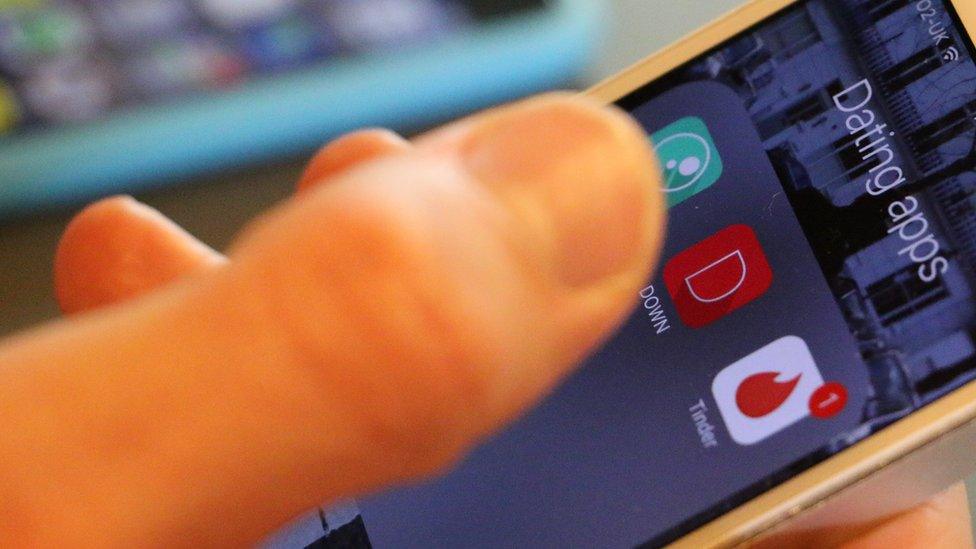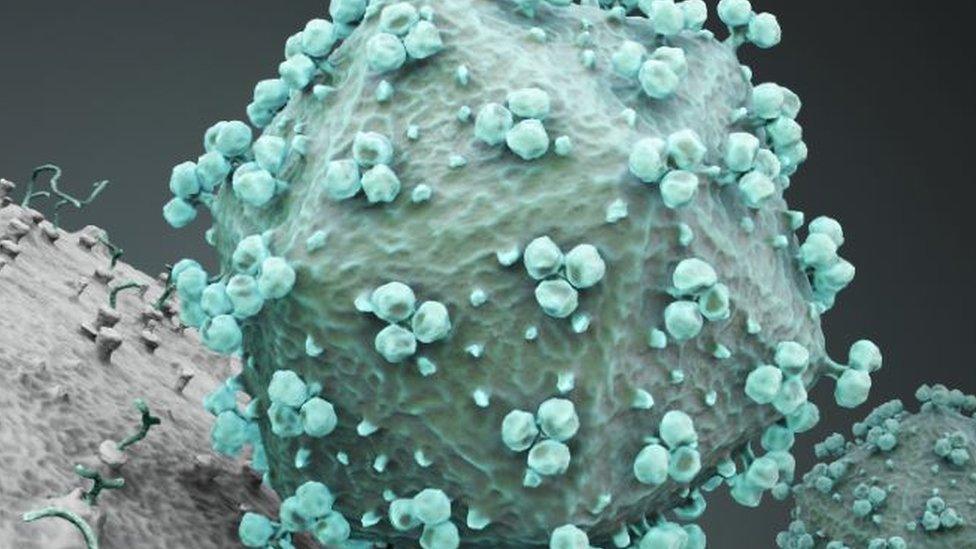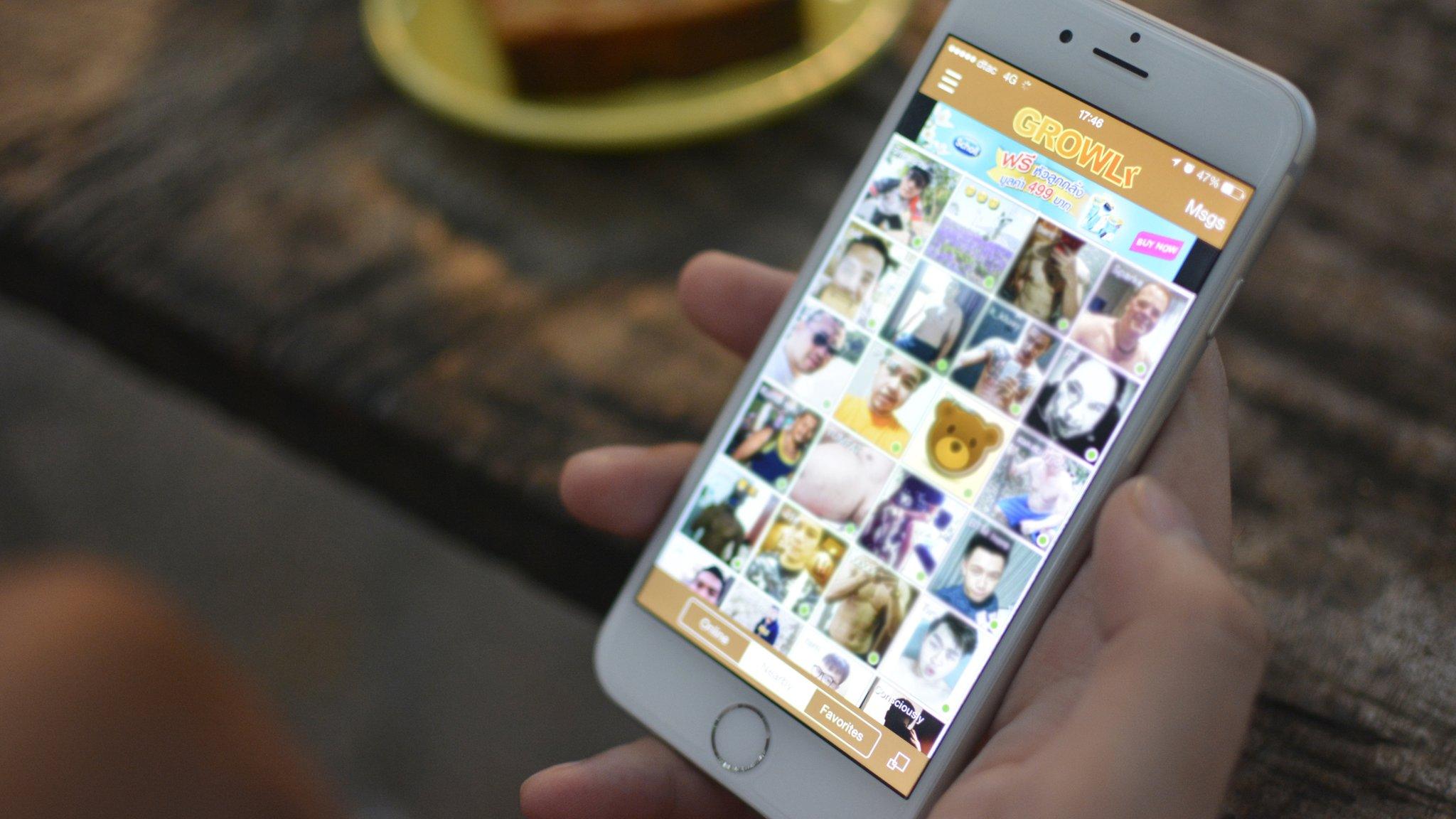Dating apps urged to help tackle STIs amid Wales rise
- Published

Dating apps need to help tackle a rise in sexually transmitted infections, health experts have said.
Syphilis, gonorrhoea, herpes and chlamydia in men rose from 2012 and 2014 in Wales and continued to increase in the past 12 months.
It has been claimed users of some sites meet up for casual sex which could contribute to a spread.
App Tinder said there was no evidence to suggest such a link.
"How we link up has changed completely with dating apps," said Dr Olwen Williams, a consultant genito-urinary physician at Wrexham Maelor Hospital.
"All these dating apps should be reminded of their obligation to people's health."
Her calls have been backed by sexual health charity FPA.
Jo Hinchliffe, a project officer in north Wales, said: "We would like to see dating websites and apps help promote safer sex messages.
"The more places people see those messages and the more normalised they become the better," he said.
"However, we've heard that the cost of paying for advertising can be prohibitive, especially for charities and organisations working in sexual health with limited budgets.
"So it would be great for those companies to do more to help these messages be shared."
British Association for Sexual Health and HIV has also blamed dating apps for a rise in STIs.
A report showing HIV and STI trends in Wales showed syphilis rose 59% between 2012 and 2014 in men, gonorrhoea 31%, herpes 10% and chlamydia 9%.
Sexual education
In women, chlamydia was up 20% and herpes 9%.
Quarterly updates for 2015 showed a continuing overall rise in STIs being diagnosed.
Cases of HIV also reached their highest level for 15 years in 2014.
The National Institute for Health and Care Excellence has published guidance suggesting handing out free or cost-price condoms in a bid to cut STIs including HIV.
Mr Hinchliffe added: "We've got to back that up with sexual education.
"People need to know how condoms work, have good knowledge about them, and when their self esteem is there, they will use them."
And Dr Williams said the focus must be on all age groups.
"We target people at certain ages giving them certain information and then forget about them as they get older but they keep on having sex," she said.
Zoe Couzens, from Public Health Wales, said the figures were "clearly a concern" but added more people were being tested for STIs.
"Convenient peg"
A spokesman for Tinder said: "An important aspect of any healthy relationship - whether formed on Tinder or otherwise - is ensuring sexual health and safety.
"While the CDC [Centre for Diseases and Control] conducted the largest and most credible study on the topic, it has never identified any connection that supports the idea that Tinder usage correlates with, let alone causes, an increase in STDs.
"We encourage our users to review and follow our health safety tips accessible through the app and on our website."
Dating apps should consider offering free adverts to condom distribution and STI screening schemes, said Laura Hamzic of the sexual health charity Brook.
"Dating apps are symbols of how much relationships have changed and as a result, they have become a convenient peg to hang rising STI rates on," she said.
"But really, there isn't much solid evidence that proves they are directly responsible.
"That said, if it's where people go to find partners then we would agree that they become a valuable point at which to push a safer sex message."
- Published6 August 2016

- Published9 June 2016

- Published14 February 2016

- Published9 June 2016

- Published6 December 2015

- Published2 November 2015
